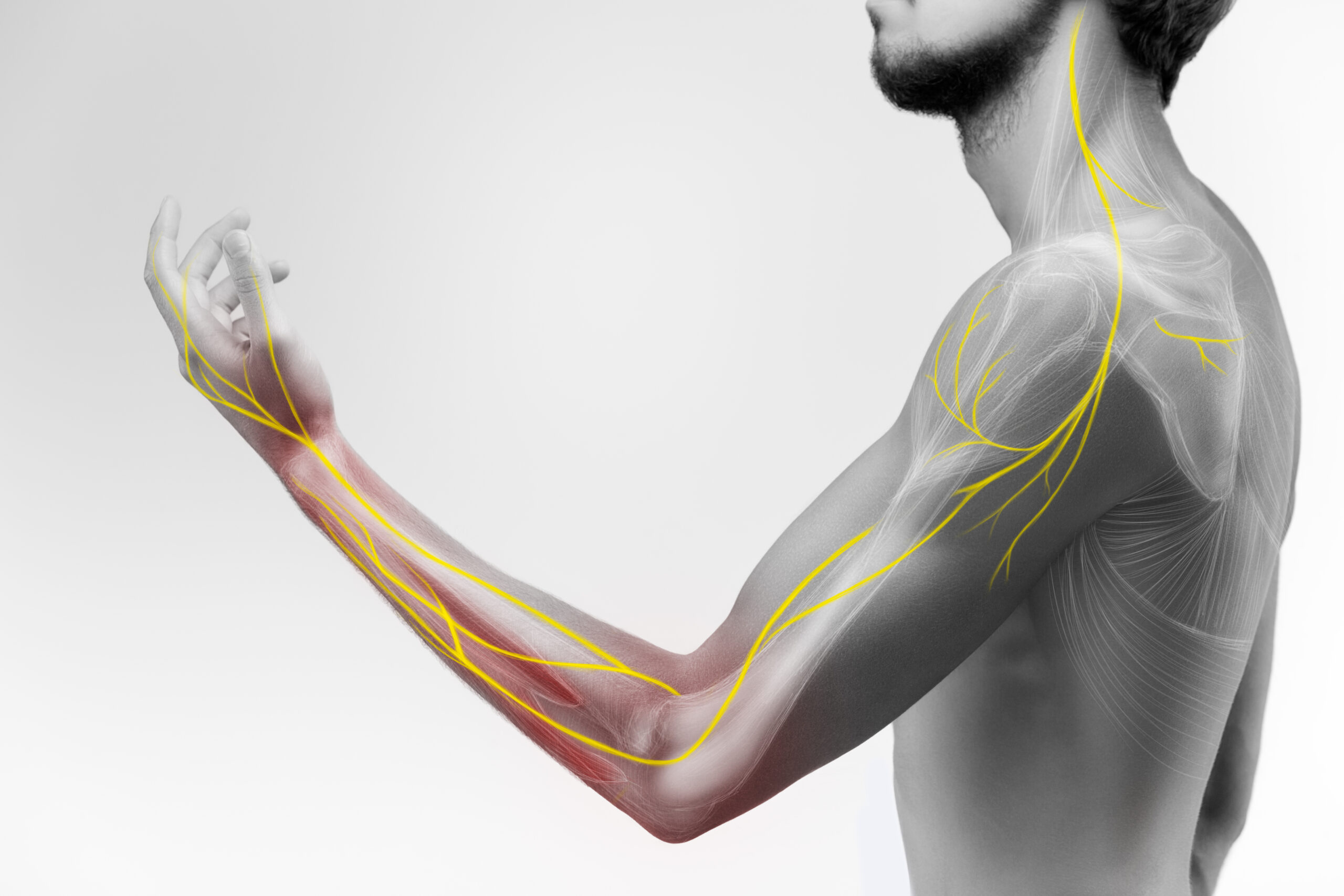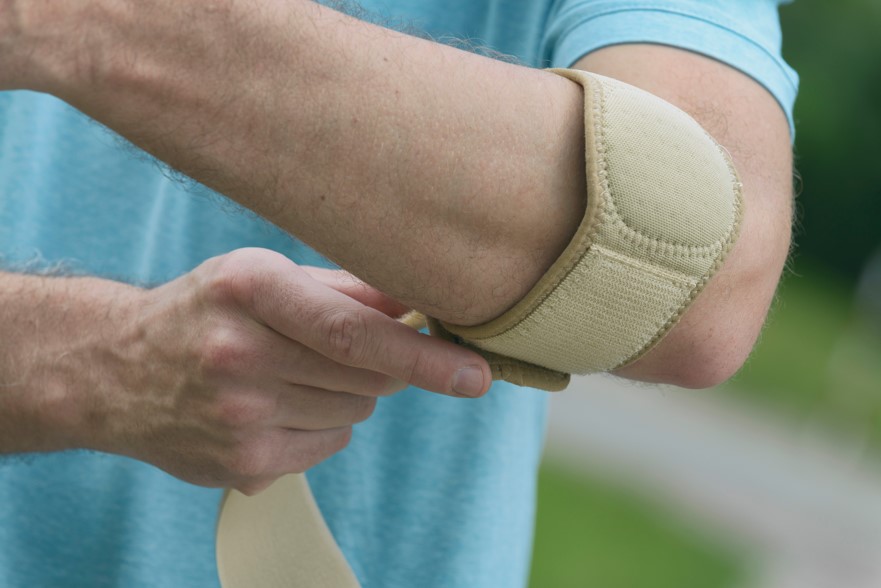The cost of Cubital Tunnel Release surgery can widely vary. Dr. Azouz will determine the cost of surgery through a medical history and physical examination. Many insurance companies consider Cubital Tunnel Release surgery medically necessary. Cubital Tunnel Release are one of the most common wrist ailments, and Dr. Azouz’s experience allows him to comfortably recommend the best possible treatment for his patients. If the cause of injury to the ulnar nerve is found to be due to an at work injury, then most worker’s compensations carrier’s will approve the surgery as medically necessary and compensable.
Cubital Tunnel Surgery: Dallas Fort Worth Hand Surgeons explain Tunnel Syndrome and treatment
Dallas Plastic and Hand Surgeons Dr. David and Solomon Azouz review Cubital Tunnel Syndrome: symptoms, surgical and non-surgical treatment, cost, insurance, and recovery.
What is Cubital Tunnel Syndrome?
Cubital Tunnel Surgery treats cubital tunnel syndrome — also known as ulnar neuropathy — caused by increased pressure on the ulnar nerve, which passes close to the skin’s surface in the elbow area commonly known as the “funny bone.” You’re more likely to develop cubital tunnel syndrome if you:
Cubital Tunnel Symptoms:
Early on symptoms of cubital tunnel syndrome include:
- Pain and numbness at the body side of the elbow
with palms upright. - Tingling sensation.
- Pins and needles sensation, especially at night.
More severe symptoms of cubital tunnel syndrome include:
- Weakness affecting the ring and little fingers.
- Decreased ability to pinch the thumb and little finger.
- Decreased overall hand grip.
- Muscle wasting in hand.
- Claw-like deformity of the hand.

Cubital Tunnel Surgery
The goal of Cubital Tunnel surgery is to reduce the pressure on the ulnar nerve by creating more space for the nerve to move freely and increasing blood supply to promote healing of the ulnar nerve. If symptoms do not respond to conservative measures, there are several effective surgical techniques available. There are different surgeries that can be performed to treat cubital tunnel syndrome, such as:
- Ulnar Nerve Transposition: This involves creating a new tunnel in front of the medial epicondyle and transposing (moving) the ulnar nerve to the new tunnel. This is the most common surgery to improve cubital tunnel syndrome. Dr. Azouz performs this surgery with a short scar/minimally invasive technique.
- Medial Epicondylectomy: This surgery involves removing the medial epicondyle, the bony bump on the inside of the elbow, enabling the ulnar nerve to glide smoothly when the elbow is flexed and straightened. Removal of the medial epicondyle is not commonly needed to improve cubital tunnel syndrome.
- Decompression surgery: The cubital tunnel is released in order to relieve pressure on the ulnar nerve. Combining a cubital tunnel release with decompression is generally thought to be more likely to prevent recurrent nerve compression.

Recovery after Cubital Tunnel Surgery:
After surgery, Dr. Azouz will provide guidelines to follow. After cubital tunnel surgery, the patient is placed in a bulky protective dressing and elbow brace. It is advised to elevate the surgical arm after surgery. Elevation of the arm generally helps to minimize pain and swelling.
The patient will have follow-up appointments in the office. During the initial follow-up appointment after surgery, Dr. Azouz usually will remove the dressing and adjust the dressing and splint to the operative arm. Dr. Azouz will remove the patient’s sutures in the following appointments. In some cases, Dr. Azouz will recommend physical or occupational therapy. Dr. Azouz will also let the patient know when they are able to return to more strenuous and demanding activities such as weight lifting and contact sports.
If you are experiencing numbness, tingling, and decrease grip strength, call Dr. Azouz to schedule your consultation for cubital tunnel syndrome at 972- 702- 8888

Cubital Tunnel Frequently Ask Question
Non Surgical Treatment For Cubital Tunnel
If the condition is diagnosed early, nonsurgical methods may help improve Cubital Tunnel syndrome, including:
Wrist splinting:
A splint that holds your wrist still while you sleep can help relieve nighttime symptoms of tingling and numbness. Nighttime splinting may be a good option if you’re pregnant. Dr. Azouz will avoid operating during pregnancy if at all possible.
Nonsteroidal anti-inflammatory drugs (NSAIDs):
NSAIDs, such as ibuprofen (Advil, Motrin IB, others), may help relieve pain from carpal tunnel syndrome in the short term but do not change the anatomy of a compressed Cubital Tunnel.
Corticosteroids:
There is no evidence that steroid injections or oral steroids improve Cubital Tunnel permanently. A steroid injection can temporarily improve carpal tunnel syndrome and can be diagnostic. Steroid injections are some times ultrasound-guided.
Corticosteroids decrease inflammation and swelling, which relieves pressure on the median nerve. Oral corticosteroids aren’t considered as effective as corticosteroid injections for temporarily treating or diagnosing Cubital Tunnel syndrome.
If Cubital Tunnel syndrome is caused by rheumatoid arthritis or other inflammatory arthritis, then treating arthritis may reduce symptoms of Cubital Tunnel syndrome. However, Cubital Tunnel syndrome is an anatomic problem as an anatomic problem surgery remains the gold standard (best) for treatment.
Surgical Management
Surgery is the gold standard (best) for treatment and is definitive in treating median nerve compression (Cubital Tunnel Syndrome).
Dr. Azouz's Locations
Dr. Azouz has privileges many hospitals and ERs throughout the Dallas Fort Worth area including: Richardson, Plano, Flower Mound, Addison. Patients frequently travel to see Dr. Azouz from Irving, Mesquite and Grand Prarie. It is not uncommon for patients to even travel from across Texas including East Texas (Kaufman, Fairfield), West Texas (Midland, Odessa) and central Texas (Waxahachie, Hilsboro) to see Dr. Azouz.
If the condition is diagnosed early, nonsurgical methods may help improve Cubital Tunnel syndrome, including:
Wrist splinting:
A splint that holds your wrist still while you sleep can help relieve nighttime symptoms of tingling and numbness. Nighttime splinting may be a good option if you’re pregnant. Dr. Azouz will avoid operating during pregnancy if at all possible.
Nonsteroidal anti-inflammatory drugs (NSAIDs):
NSAIDs, such as ibuprofen (Advil, Motrin IB, others), may help relieve pain from carpal tunnel syndrome in the short term but do not change the anatomy of a compressed Cubital Tunnel.
Corticosteroids:
There is no evidence that steroid injections or oral steroids improve Cubital Tunnel permanently. A steroid injection can temporarily improve carpal tunnel syndrome and can be diagnostic. Steroid injections are some times ultrasound-guided.
Corticosteroids decrease inflammation and swelling, which relieves pressure on the median nerve. Oral corticosteroids aren’t considered as effective as corticosteroid injections for temporarily treating or diagnosing Cubital Tunnel syndrome.
If Cubital Tunnel syndrome is caused by rheumatoid arthritis or other inflammatory arthritis, then treating arthritis may reduce symptoms of Cubital Tunnel syndrome. However, Cubital Tunnel syndrome is an anatomic problem as an anatomic problem surgery remains the gold standard (best) for treatment.
Surgical Management
Surgery is the gold standard (best) for treatment and is definitive in treating median nerve compression (Cubital Tunnel Syndrome).
Dr. Azouz has privileges many hospitals and ERs throughout the Dallas Fort Worth area including: Richardson, Plano, Flower Mound, Addison. Patients frequently travel to see Dr. Azouz from Irving, Mesquite and Grand Prarie. It is not uncommon for patients to even travel from across Texas including East Texas (Kaufman, Fairfield), West Texas (Midland, Odessa) and central Texas (Waxahachie, Hilsboro) to see Dr. Azouz.




